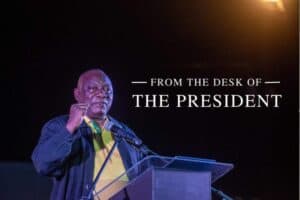KwaSizabantu Mission, a controversial church facing serious allegations of abuse, is using the same strategy to avoid accountability that it has used for more than two decades.

This is according to Pastor Emeritus Martin Frische, who testified before the CRL Rights Commission in Johannesburg on Wednesday as part of the commission’s probe into the allegations.
“How many rapes do we need to prove?” Frische asked.
The commission’s investigation follows a News24 exposé which revealed allegations of sexual assault, physical and psychological abuse, and financial crimes at the mission.
Frische interacted with the mission for more than 40 years regarding the allegations and was involved in convening a panel of globally and locally recognised Christian leaders to investigate the allegations 20 years ago. They warned of cult-like behaviour at the mission.
Speaking at the CRL Rights Commission probe, Frische explained that KwaSizabantu Mission used the same tactics “again and again” to avoid accountability when it comes to the allegations.
“When concern for lack of accountability and credibility is voiced regarding the KSB leadership, they tend to retaliate with accusations that the concerns are based on lies and distortion, throwing the same accusations back on those [raising] concerns,” Frische said.
He added: “KSB consistently picks at minor issues dealing with the mechanism and delivery of concern or even the messenger itself, while completely dismissing even the gravest of concerns”.
Frische explained that when he visited the mission years ago to investigate an allegation against them, he was told that he did not call first and would therefore not be engaged.
Allegations
He compared this to the mission’s s reaction to allegations which recently surfaced, specifically the allegation of “multiple ongoing rapes” carried in a News24 documentary, Exodus, and the news that the the mission staged a walkout at the commission after accusing the chairperson of bias.
“All this quibbling here. How many rapes have happened. Is that an issue?
“If there would be one person who was raped and KwaSizabantu and that person went to [the mission’s leader] Erlo Stegen and said ‘you need to do something’ and he hasn’t done anything and actually called that person something else, it’s wrong.
“How many rapes do we need to prove until there is an outcry from government, from the people, from the world; how many rapes? It’s ridiculous to refer to the semantics,” Frische said.
Cult, sect or church?
Commenting on whether he believed KwaSizabantu was a church, a sect or a cult, Frische said he believed these overlapped at KwaSizabantu.
He explained that while the mission was not abnormal as a popular Christian religious movement, some “notable” things about its organisational evolution were “not conventional”.
This includes the mission’s rapid growth over 13 years, its financial oversight structure which is not transparent given its business interests, its denomination structure, its self-promotion and its promotion on individual vulnerability as well as allegiance and dependence on the mission.
“What is KSB (KwaSizabantu)? Is it cult, sect or church? I would say not either or, but all three simultaneously.
“KSB acted as a church, having church services, using scripture, singing Christian hymns,” Frische explained.
“[B]ut it’s always the same message over 50 years – confess your sin, confess it in the presence of a counsellor and Erlo Stegen would many times say… ‘We will see how it will go from now on.’ It’s not: ‘God has forgiven your sin, go in peace,'” Frische said.
For more news your way, download The Citizen’s app for iOS and Android.






